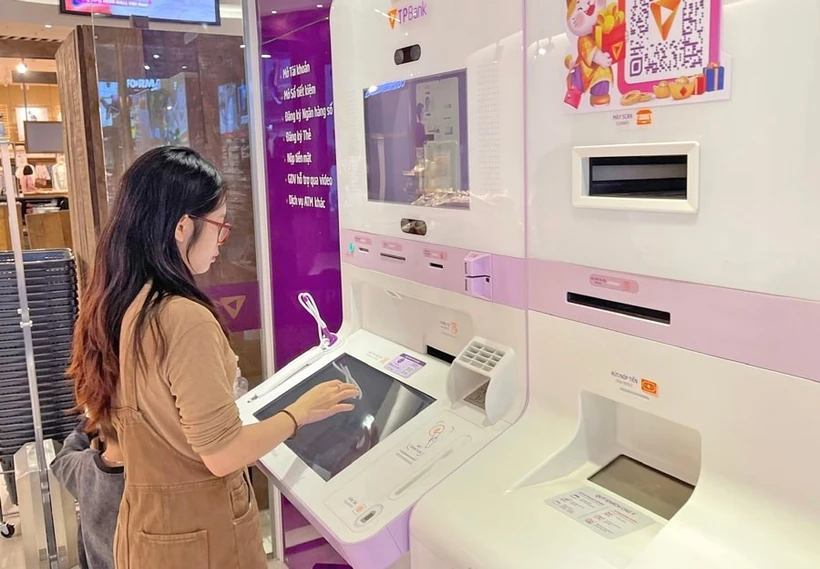Hanoi (VNA) – Digital banking services have achieved remarkable progress in recent years to betters serve citizens and businesses, according to insiders.
Recent data revealed that more than 87% of Vietnam’s adult population now hold payment accounts at banks while many credit institutions are processing more than 95% of transactions through digital channels. The transformation has been backed by continuous upgrades of banking technology infrastructure.
The State Bank of Vietnam (SBV) reported extraordinary growth in both mobile and QR code payment transactions, with average growth of over 100% over the past five years. The interbank electronic payment system now processes 830 trillion VND (32.83 billion USD) a day while the financial switching and electronic clearing system handles 20-25 million transactions daily.
Meanwhile, the National Payment Corporation of Vietnam (NAPAS) facilitated 9.56 billion transactions in 2024, a year-on-year increase of 30%.
The National Payment Corporation of Vietnam (NAPAS) is the payment intermediary licensed to provide financial switching and electronic clearing services in Vietnam. The NAPAS FastFund 247 service showed particularly strong growth, with transaction volumes up 33.5% and values up 14.9%. In stark contrast, ATM transactions continued their decline, dropping 19.5% in volume and 19.1% in value, now accounting for just 2.63% of total NAPAS system transactions.
With commercial banks, the regular upgrade of technology infrastructure has helped them develop diverse services.
Vietcombank has implemented an AI-powered customer service system utilising big data for personalised experiences. The VCB Digibank app now features direct calling capabilities through WebRTC technology, integrated with existing VoIP system.
Meanwhile, TPBank has adopted cloud computing, big data, and AI technologies to modernise its database infrastructure and improve efficacy across all transactions channels.
At Military Commercial Joint Stock Bank (MB), 6.5 billion transactions were handled via digital channels in 2024, accounting for 96.7% of the total transactions. A super-app was developed with more than 200 mini-apps for services ranging from online loans to hotel booking.
However, industry experts identify several challenges in the digital transformation journey, including the need for complete legal frameworks, cybersecurity measures, and high-quality human resources.
Banks held that developing a sound infrastructure system and technology solutions will help them gain competitive edge over their rivals, fintech firms, and online business platforms. Besides, improvement in customers’ experience across all transactions channels as well as rapid shift in their behaviour pose significant challenges for the banks.
They laid stress on the significance of developing and upgrading digital services, expressing their advocacy for international compliance cyber security standards. They suggested competent authorities build mechanism to protect users, better respond to electronic banking fraud, and develop more effective security solutions./.




























